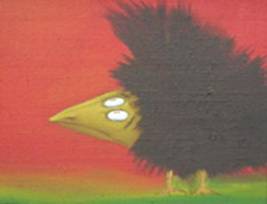developments and partly in order to show how surprisingly 'modern' old Chinese plots can be.
The exposure of the three monks who falsely reported the theft of a golden statue, in Chapter VII of the present novel, is based on a story in-the T'ang-yin-pi-shik, the collection of criminal cases mentioned above. This particular case will be found on page 159 of my translation, Case 57-B.
The 'framework' of the present novel, viz. a tale of a distant town where a local bully has usurped power, also is a common situation in Chinese novels. Sometimes a clever magistrate outwits and deposes the usurper, sometimes it is the usurper who is the hero of the story. He takes over from a corrupt magistrate, and subsequently is officially confirmed in his position by a grateful government.
Finally, the role played by 'Master Crane Robe' in this novel (see Chapter XIX) is a much-chastened version of the 'deus ex machina' found in many old Chinese detective novels; they introduce a supernatural being (sometimes the King of the Nether World himself come down to earth in human shape) which helps the magistrate to solve a baffling crime by means of occult powers. This element is, of course, unacceptable to the modern reader. In the present novel, therefore, I represent Master Crane Robe as a high-minded Taoist recluse, leaving it open as to whether the clues Judge Dee discovered during their conversation were the result of a lucky accident, or of the master's inside knowledge of Governor Yoo's affairs, or, again, of the master's unusual mental powers. I chose as background of their conversation the contrast between Confucianism and Taoism. As is well known, Confucianism and Taoims are the two basic ways of thought that have dominated Chinese philosophy and religion ever since approximately the 4th century B.C. Confucianism is realistic and very much of this world, Taoism is romantic and wholly unworldly.
Judge Dee, as an orthodox Confucianist scholar-official, venerates the Confucianist Classics which attach supreme importance to such accepted moral values as justice, righteousness, benevolence, duty, etc. Master Crane Robe, on the other hand, advocates the Taoist principle of the relativity of all accepted values, and a life of non-action jenseits vom Guten und Bösen', in complete harmony with the primordial forces of nature. These two conflicting views are epitomized in the couplet of Governor Yoo about the worm and the dragon. This couplet I quoted from a Buddhist work on Ch'an (Japanese: Zen) philosophy. The Ch'an sect of Buddhism often comes very close to Taoism.
R. H. VAN GULIK
